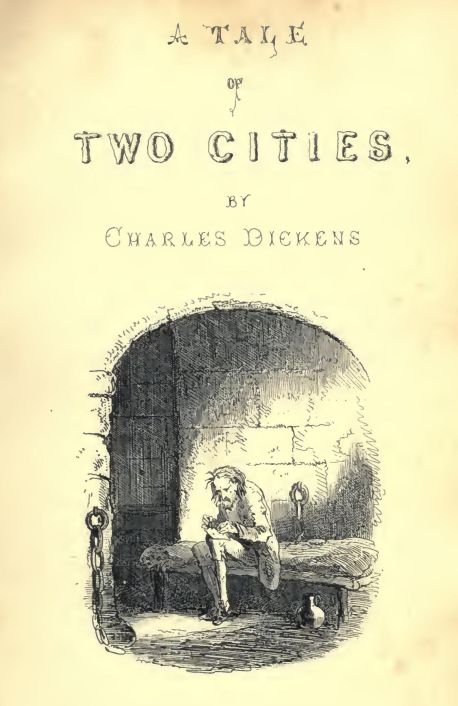“Recalled to Life” is the title of the first section of Charles Dickens’s classic novel, “A Tale of Two Cities.” In that story - spoiler alert - the person ‘recalled to life’ was a prisoner held incommunicado, indefinitely, in a prison of the old French regime before the Revolution of 1789. He is ‘recalled to life’ from his imprisonment, and is reunited with a daughter he last saw as a toddler.
This is an example, drawn from classic literature, of a transformation of a life from a living death to a life lived in the sunlight of freedom. Another example, from another novel of Charles Dickens, is that of Ebenezer Scrooge, in “A Christmas Carol”, who lived in a dungeon of his own making until he was brought into a fuller life by, yes, loving relatives, but more by the spirits of the holiday, and by the examination they provoke, confronting him with his past disappointments and failures, and his own choices that had led him into the cramped cold corner he had been making of his life.
Scrooge, unlike the prisoner in the first tale, was not imprisoned by others. But he is freed, nevertheless, and restored to a fullness of life. He is still an old man, but a happy one.
Of course what recital of near-death resuscitations in popular culture would be complete without the words of Miracle Max from the now-old movie, “The Princess Bride”. Confronted with the challenge of reviving The Man in Black, he makes a key observation. His friends think The Man in Black is dead. But Max says, “Your friend here is only mostly dead.There is a big difference between mostly dead and all dead… Mostly dead is slightly alive.” And begins his bogus but effective curative efforts.
But few Bible commentators would agree with the proposition that Lazarus, whom Jesus raised, was only mostly dead. In fact the evangelist makes the point clear when “Martha, the sister of the dead man, said, ‘Lord, the smell will be awful! He’s been dead four days.’” (John 11:38b) The tradition was that after four days a person was surely all dead.
Lazarus is dead. Now Jesus begins to work, when all earthly hope is gone. And he has said to the grieving family and their friends that the delay in reaching the deathbed until too late for Lazarus to recover would provide an opportunity for them to believe, to have faith, and to see God’s glory.
This is a partial answer to the vexing question, why doesn’t God save everybody? Why does anybody have to die? In the case of the man born blind, Jesus said that affliction was not due to anyone’s sin, not a punishment, but an occasion in which God’s glory could be shown.
And here he goes again, healing somebody, and he says this too is an occasion to see God’s glory, and to receive the gift of faith. It is not a fix-it situation.
That is hard to say. Causes a wrench in the gut. Why not heal the poor guy? He does, of course, this time…
Jesus’ ministry of walking around Palestine, Galilee, Samaria, Judea, and beyond those borders, was one of proclamation of life, and of a fullness of life, that became possible as people began to accept the limits and truth of their own folly and hardness of heart, as with Scrooge, with the call of love, as with that cast of clowns in the old movie, with the injustice and redemption again of the people in “A Tale of Two Cities”, and with us, as we begin to receive the words of life in the midst of death, mostly dead or even all dead.
One well-worn Bible study technique is to listen to a passage being read, then call out key words or phrases that have struck each person in the group. When I listened in on a Zoom Bible Study about the Raising of Lazarus the words that called out to me were “dead, dead” and “life, life”.
Jesus calls us to turn from death to life. From the death-bringing patterns of our past to the freedom he brings to us in his own gift and sacrifice. We are to be “recalled to life” and enter into the fullness, however painful, of that restoration, to the people whom we are called truly to be.
Almighty God, your Son came into the world to free us all from sin and death. Breathe upon us the power of your Spirit, that we may be raised to new life in Christ and serve you in righteousness all our days, through Jesus Christ, our Savior and Lord, who lives and reigns with you and the Holy Spirit, one God, now and forever. Amen. (Lutheran prayer for the Fifth Sunday in Lent)
The Rev. John R. Leech, D.Min., is a priest associate at the Episcopal Church of Saint Matthew, Tucson, and a frequent guest preacher in southern Arizona churches.
http://www.lectionarypage.net/YearA_RCL/Lent/ALent5_RCL.html
https://www.youtube.com/watch?v=xAcRvlTZDv8
Miracle Max (https://www.youtube.com/watch?v=d4ftmOI5NnI)
“Breathe on me, Breath of God” Hymn #508

